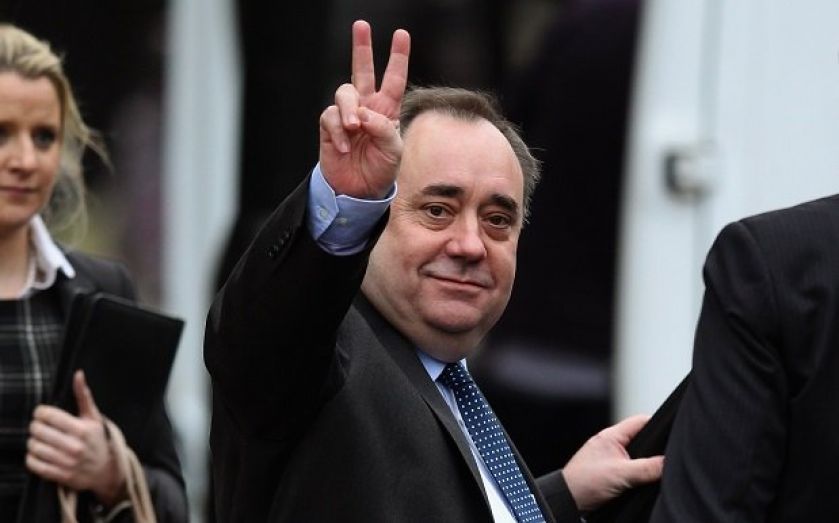Independent Scotland “will have to re-apply for Nato membership” – and will have a £500m defence shortfall

As the debate over Scottish independence rages and the latest polls show the two sides neck and neck, Scotland's future place in world affairs is becoming an increasingly popular talking point.
The most recent comment on the issue has come from a Nato official, who told Reuters Scotland will have to reapply for its membership of the Alliance.
"It appears widely agreed that, as a matter of law, a Scotland which has declared its independence and thereby established its separate statehood would be viewed as a new state. A new state would not be a party to the North Atlantic Treaty, and thus not a member of Nato," the official, speaking on condition of anonymity, said.
"If it were to choose to apply for Nato membership, its application would be subject to the normal procedure," he added.
In the event of a yes vote, Scotland's Nato application could face two major hurdles. First off, the SNP has promised to move Britain's nuclear deterrent from Faslane, in the west of the country, by 2021, despite Nato's requirement that every member sign up to its first-strike policy.
In August, former Nato commander Sir Richard Shirreff said: "While the SNP may accept the principle of nuclear deterrence, it remains unclear how other members of Nato will view the disruption to the coherence of Nato defence caused by moving the submarine fleet out of Scottish waters."
Such concerns have been rejected by Alex Salmond and former ambassador to Nato Dame Mariot Leslie who wrote in a letter to the Scotsman newspaper: "A democratic, non-nuclear Scotland with strong military and technological traditions would fit naturally alongside similar Nato members in Northern Europe, and would be likely to join them."
Second, the SNP recently came under attack from Scottish Conservatives over plans for defence spending if the voters decide to ditch the Union on 18 September.
At the Cardiff conference, Alliance members pledged a minimum spend of two per cent of GDP on defence. The Scottish government said in a white paper on independence that it will spend £2.5bn, or 1.7 per cent of GDP on the country's military.
This leaves Alex Salmond £500m short of the “Wales Pledge” to spend two per cent of GDP on defence. Furthermore, Nato officials have emphasised Scotland's application to the organisation will not just be a formality.
Speaking to The Scotsman a Nato spokesman said:
All member states have signed up to the two per cent pledge; therefore any theoretical new member state would have to abide with that.
Joining Nato isn’t just a question of applying and walking in. The bottom line is that you need every single Nato member to say Yes for you to join and even if one doesn’t, you’re stuck.
Nato has once again become a key player in international fears in the wake of Russian involvement in Ukraine and the rise of IS in Iraq and Syria.